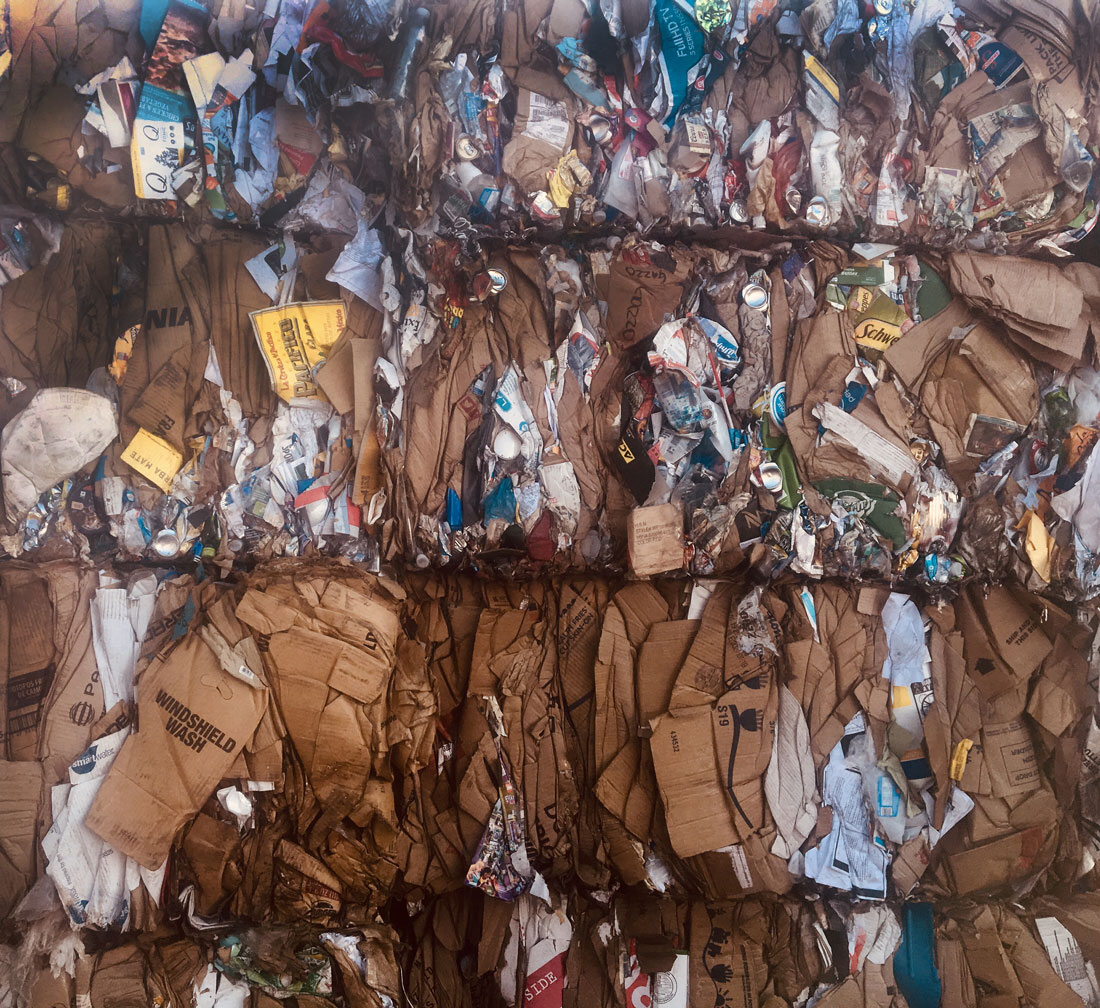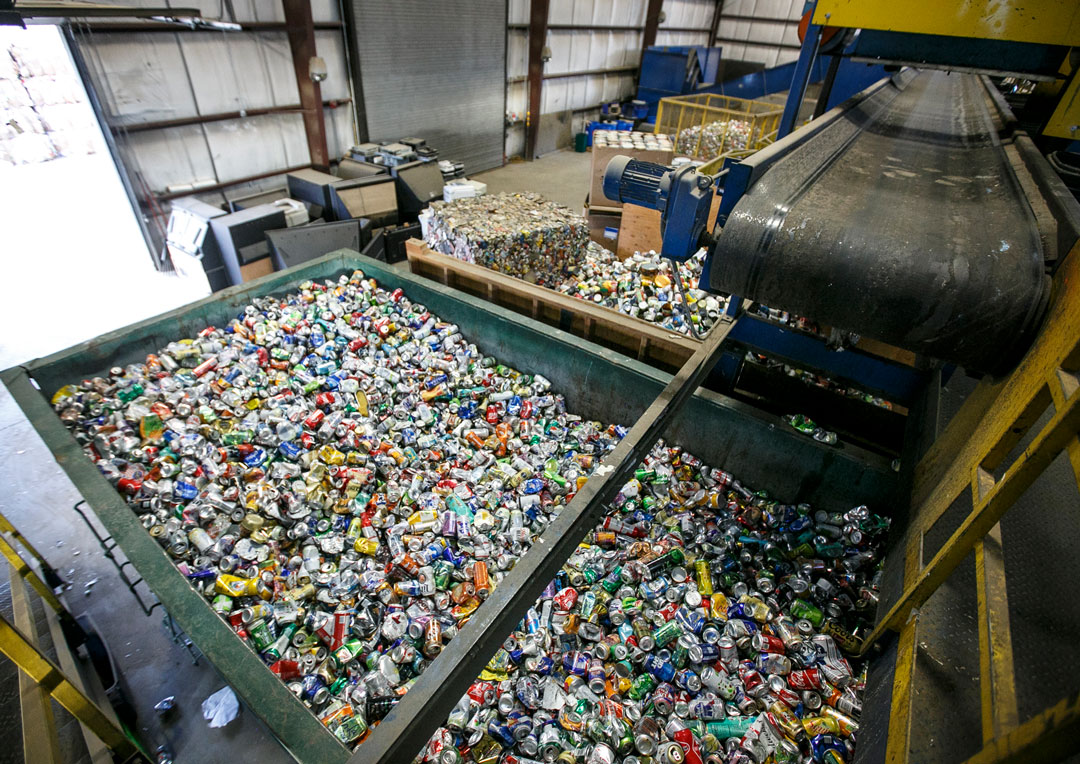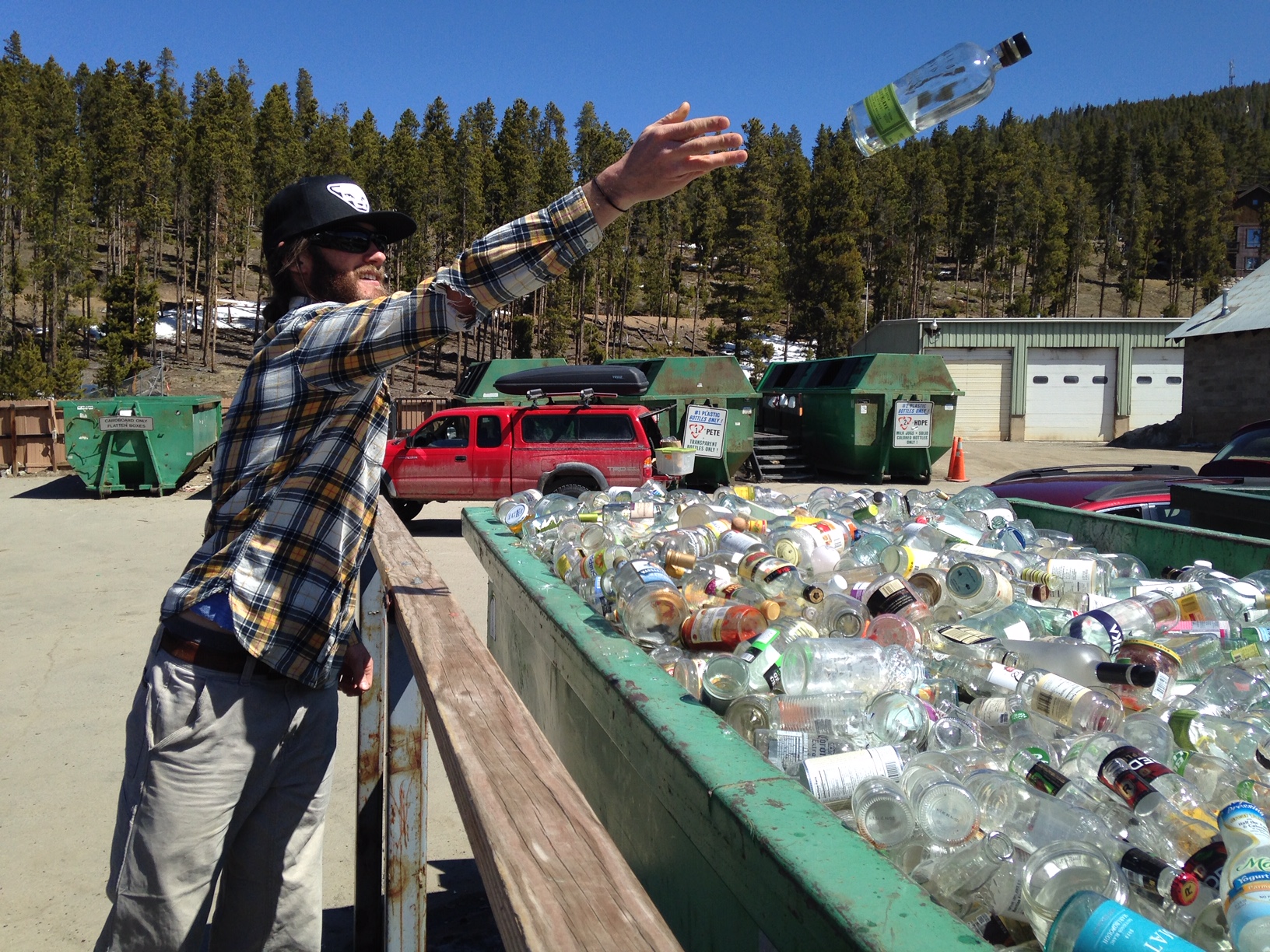
Dear Eartha, I noticed someone dumping what looked like garbage in the glass bin at our recycling center. I tried to get it out but couldn’t reach it. I’m concerned this causes all of it to get trashed! What actually happens in these situations?
We all have heard that tossing materials in bins where they don’t belong can ruin a whole load of recycling. Trash in a glass bin certainly could cause the load to end up in the landfill.
Another big no-no is placing plastics #3-#7 in the local drop-off center bins designed only for plastics number #1 or #2. Other common reasons for recycling getting trashed include not rinsing containers, throwing paper in your compost, or putting glass in single-stream/co-mingled bins.
This is known as contamination and we all hate to see it happen. Sometimes we make mistakes, and that happens. What’s painful for me is when I hear a story like yours, someone intentionally throwing garbage or unaccepted items into a recycling bin. So what does happen after you make a mistake – or worse – knowingly contaminate?

Contamination = trash
There’s often a level of contamination in recycling loads when they arrive at a materials recovery facility (MRF). Workers and machines sort and bale materials, pulling out unacceptable items along the way. Depending on the contamination rate of each load that comes in, MRFs have the right to landfill the load or sort out the contamination.
Our local MRF, the Summit County Resource Allocation Park (SCRAP), located outside of Keystone, operates at a 50% rate. To give you some perspective, China’s regulations on scrap plastic allow for just .5 percent contamination.
If a recycling truck arrives at the SCRAP and the load looks to be half contaminated or more, it is landfilled. Luckily that doesn’t happen too often, but we should all strive to properly sort our recyclables and send them along in the best possible condition.
The biggest local offenders
Let me explain more what might constitute contaminants. Have you been hesitating to rinse your containers before recycling? You should always rinse. By the time it arrives at the MRF, chances are high that unrinsed containers have mold growth. The moldy item will be considered a contaminant and thrown out.
Dirty food containers are one of the biggest offenders in our area. Others include plastic toys, construction materials and bagged recycling – not only does this cause more work for the MRF employees, bags unnecessarily use more plastic! Keeping recyclables in a bin without a plastic liner is always the best route. Remember too, that plastic lids, caps, and greasy pizza boxes count as contaminants.

Think before you throw
If you aren’t sure if something is recyclable, call High Country Conservation Center at 970-668-5703 or visit the High Country Conservation Center’s local recycling page to search Rocky the Recycling Robot. You can also use this webpage to learn more about what materials are accepted in our local recycling programs and to find a recycling center nearest you. And, always remember the golden rule of recycling – when in doubt, THROW IT OUT!
